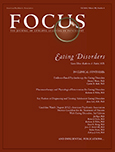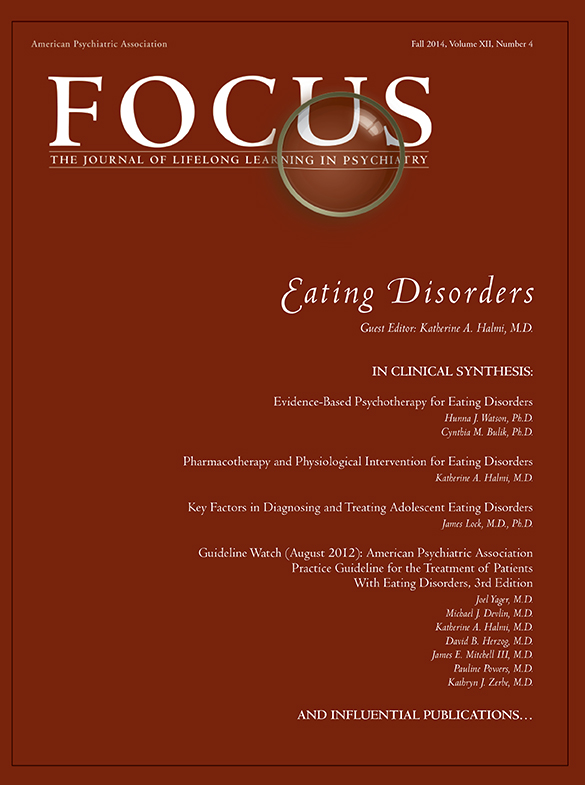Individuals search the Internet for a variety of reasons, such as seeking information, health-related resources, interactions via social media, and web-based support groups of like-minded people. Online health-related discussion boards may encourage participants to take an active interest in their well-being and to adopt a more health-conscious lifestyle (
4,
5). With the blossoming of health-related websites, those who may condone or advocate for less healthy or even self-destructive behaviors have emerged. For the individual who is preoccupied with body image and seeking support for her/his beliefs, there is the pro-anorexia movement Internet discussion boards. The “pro-anas” websites propose that self-starvation is not a disorder needing to be cured. Rather, restricting food intake is depicted as a method of demonstrating willpower and freedom from the high consumption, materialistic society that surrounds them—an “experiential and aspirational” state (
6). Although many of the pro-anorexia websites have been closed due to complaints from the media, parents, eating disorder support groups, and those in recovery from an eating disorder, some “pro-anas” sites have proved resistant to eradication. Tierney has researched the pro-anorexia web presence and has suggested that there may be both pros and cons to these websites for individuals with anorexia nervosa. On the negative side, support is given for individuals planning a fast, methods of weight loss and maintaining resolve are shared, starvation may be romanticized as a method of spiritual cleansing, and there is often criticism of the medical community, family, and friends who would attempt to coerce treatment. On the positive side, some sites provide support for the individual who feels different and alienated from peers, family, and the health system because of their beliefs. There is the comfort of like-minded individuals and the freedom to honestly express feelings, thoughts, and concerns in a noncritical forum. For an individual who has become increasingly withdrawn and isolated, this forum may be their one connection to other humans (
7).
Clinical Vignette
Jeanette Smith crept into the waiting area of the psychiatrist’s office, her mother closely trailing her, her hand planted against Jeanette’s back to maintain her forward movement. Jeanette was dressed in sweat pants, a baggy pink hoodie with the hood pulled up around her sunken cheeks. Her nails were nicely manicured with bright pink polish embellishing her pale thin fingers. Her mother accompanied Jeanette to the receptionist. Her mother was the one who spoke, giving Jeanette’s name and appointment time. Jeanette was sitting rigidly in her chair with her leg bobbing up and down rapidly when Dr. King emerged from the office to invite her in. Jeanette shook Dr. King’s hand limply as she slumped into the office. Her mother gave Dr. King a final pleading smile as the door closed in front of her.
Dr. King smiled encouragingly at Jeanette, as she grinned politely back. Jeanette answered questions briefly with an unwavering pleasant and indecipherable smile. She reported that she was 17 years old, in the 11th grade, an honors student, and that she enjoyed running and ballet. She was not sexually active, did not use drugs or alcohol, and did not engage in high-risk behaviors. She explained that her mother is a “worrier” who has been hovering over her for her whole life. “What I eat is just her newest thing to worry about,” Jeanette explained matter-of-factly.
“Yes, I had noticed that the appointment was your pediatrician’s idea and your mother made the call. You really would just as soon tell me what I want to hear and be done with me—correct?” Dr. King noted with an empathic smile and a glint of humor in her eyes.
“No offense, Dr. King, but I really prefer more of a natural lifestyle. I don’t believe in medication,” Jeanette said resolutely.
“Oh,” Dr. King said with a hint of surprise in her tone. “I don’t think I mentioned medication. I was just hoping to get to know you.” Jeanette’s pleasant smile re-emerged.
“Okay,” she replied sweetly.
When asked about her weight, Jeanette admitted that she had lost some weight over the past year. “I eat healthy food,” she explained. When asked to step on the scale, Jeanette appeared apprehensive. When her weight was recorded, Jeanette’s eyes widened and her pleasant smile evaporated.
“We usually have patients weighed with their back to the scale, but I wanted to let you know our protocols before springing them on you. Do you weigh more than you expected?” Dr. King queried.
“Oh, just a little bit,” Jeanette admitted.
“You are still at only 81% of ideal body weight—that is considered severely underweight. Did you drink a lot of water before you got here?” Dr. King asked curiously.
“Some,” Jeanette answered.
“That probably explains it. Do you need to use the restroom?” Dr. King asked, pointing down the hall.
“Are we done with the weight?” Jeanette asked, a glint of suspicion in her eyes.
“Yes,” Dr. King reassured.
Upon Jeanette’s return to the office, Dr. King asked about friends, Internet use, websites, social media, and chat groups. Jeanette said that she had lots of acquaintances from school groups, sports, and dance, but she didn’t hang out with them after school. “I’m too busy with my schoolwork,” Jeanette explained.
“You’ve been less social lately?” Dr. King questioned matter-of-factly.
“Sure, it is my junior year and I have to do well to get into a good college,” Jeanette answered emphatically. When asked specifically if she had visited any websites or chat groups about eating disorders or anorexia, Jeanette looked at the corner of the desk as she replied, “I looked at one of them once. I was just curious.”
“Did you find someone that you felt connected to from that website?” Dr. King asked.
“One girl,” Jeanette admitted. “It’s weird. We really seem to understand each other. I mean, it’s like we’ve known each other for years,” Jeanette mused.
Dr. King smiled and nodded. “And what tricks have you learned about disguising your weight besides drinking lots of water?” Dr. King asked, no hint of criticism in her voice.
“Well, there are lots of them, but I haven’t tried them,” Jeanette explained.
“But you probably will be tempted to,” Dr. King noted.
“Well, there is a game called ‘fool the doctors,’ some people on the site like to play. It’s actually kind of funny what they come up with,” Jeanette admitted.
“Yes,” smiled Dr. King. “But I prefer honesty and being genuine to games and tricks. I do hope that you won’t play that game,” Dr. King said, this time her expression serious and concerned.
“I’ll try not to,” Jeanette answered, her face also serious. “No tricks from you, either—Ok? Like sending me to the hospital or some such treachery.”
“We will decide the treatment based on your health and honesty. You will then have complete control over whether you need to be in the hospital or not. No surprises. Deal?” Dr. King asked hopefully.
“Deal,” Jeanette replied.

